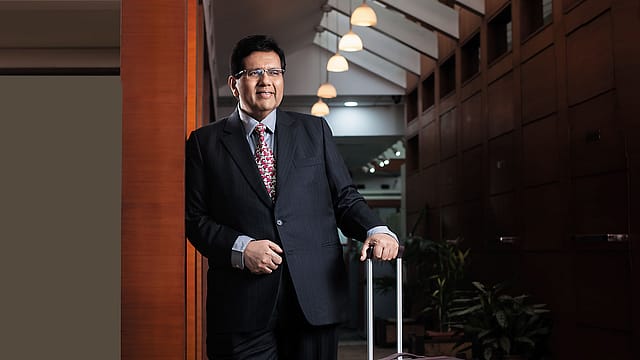VIP Industries sale: When legacy doesn’t mean lineage
ADVERTISEMENT

By all accounts, Dilip Piramal built VIP Industries into a market leader with the conviction and craftsmanship of an old-school industrialist. Over the past five decades, he acquired companies, built over a dozen factories—including the world’s largest soft luggage facility in Bangladesh—and steered the company through the arc of Indian consumerism. But when it came to succession, Piramal didn’t cling to continuity for continuity’s sake. Piramal has entered an agreement with a consortium led by private equity fund, Multiples, to sell 32% in the company and retain a minority stake.
“In my family case, when the third generation, which is myself, and my two brothers finished our education, we moved quite naturally into the business and performed quite well,” Piramal tells Fortune India. “I myself have acquired five new companies, all of which I sold successfully after running them for 10 to 25 years.”
The fourth generation, though, had different ideas. “The present new generation has other ideas. In so many families which are among the richest in the country, their scions have become artists or are running restaurants. There is nothing wrong in that at all. One must pursue one’s own dreams,” he adds matter-of-factly.
So, when next-generation disinterest is often seen as a failing or a rupture in traditional Indian family business values, Piramal’s pragmatic approach is a quiet departure. He isn’t alarmist. He’s accepting. In a country where over 75% of businesses are family owned, this is a shift in tone that bears noting.
In fact, research from McKinsey hints that when a family-owned business (FOBs) loses the benefit of its founder’s entrepreneurial edge, growth slows and performance drops. “To sustain performance over generations, FOBs need to groom the next generation to lead effectively, shaping and nurturing the right culture, building the right talent, and establishing the necessary support systems,” states the McKinsey study.
For Piramal, though, the turning point came after his daughter Radhika Piramal—who served as MD and CEO for eight years—decided to return to London. “She had a home in London and had lived there for nearly 10 years before she came to India to become MD of my company. Around 2017, she wished to go back to England for personal reasons,” Piramal recalls. “She was involved in the company's management after that but since then the company's performance has been going down,” adds Piramal.
That’s when he made the difficult but deliberate call: to sell controlling interest in VIP Industries and bring in new ownership. “Ultimately, I decided that I have to have a new owner who will take control of the management and bring a lot of new energy,” he says.
It’s a statement that reflects not resignation, but responsibility—towards shareholders, employees, and the brand he built.
Piramal’s outlook stands in contrast to Uday Kotak’s recent remarks, where the banker observed that more and more young heirs are content running family offices rather than operating businesses. “If someone has sold a business, they should be thinking about starting, buying, or building another one. Instead, I see many young people saying, ‘I’m running my family office.’ They should be creating real-world businesses,” Kotak said, lamenting a growing detachment from the operator mindset.
His son Jay Kotak, who co-heads Kotak 811 and manages conglomerate relationships at the bank, acknowledges that operator DNA still runs strong in India’s large business families. “On the margin, it’s better for next-gen leaders to be involved in operating businesses. But to each his own,” Jay tells Fortune India. He sees his own role as that of a professional, not a legacy holder.
The generational shift isn’t uniform—and that’s precisely Piramal’s point. The Indian business landscape today allows for multiple outcomes. Some successors turn founders, some remain stewards, and others step away entirely. “So many large companies which are family owned such as Dabur, Pidilite and Marico have become completely professionally managed and are doing extremely well,” says Piramal.
According to McKinsey, family-owned businesses contribute more than 75% of national GDP—one of the highest percentages in the world—and this number is expected to rise to 80–85% by 2047. Notably, between 2012 and 2022, family-owned businesses delivered shareholder returns twice as high as non-family-led firms. For the generation transitioning out, McKinsey notes, it is vital to hand over the baton with full confidence in the successor—and to seek a new purpose beyond business.
That’s precisely what Piramal has done.
“I’ll be available as an advisor whenever they [the new owners] seek my input, but I don’t intend to offer any unsolicited advice,” he says. In stepping back and handing over the reins to a professional investor, Piramal may well be showing India’s next-gen families that letting go can be its own kind of leadership because sometimes, the strongest legacies are those that live beyond the bloodline.